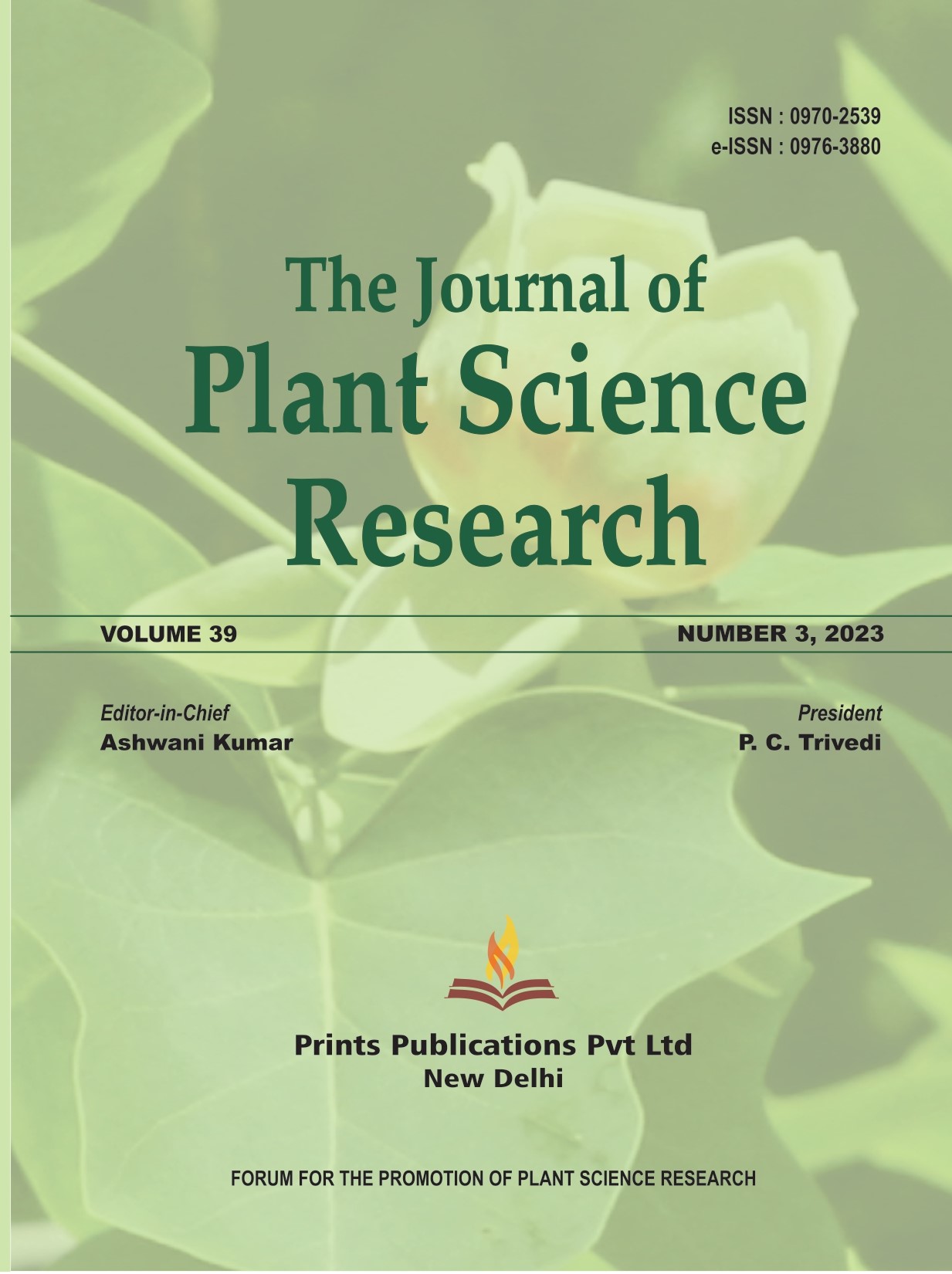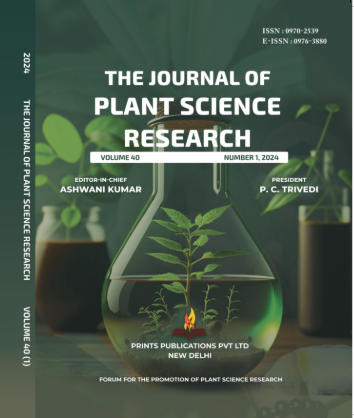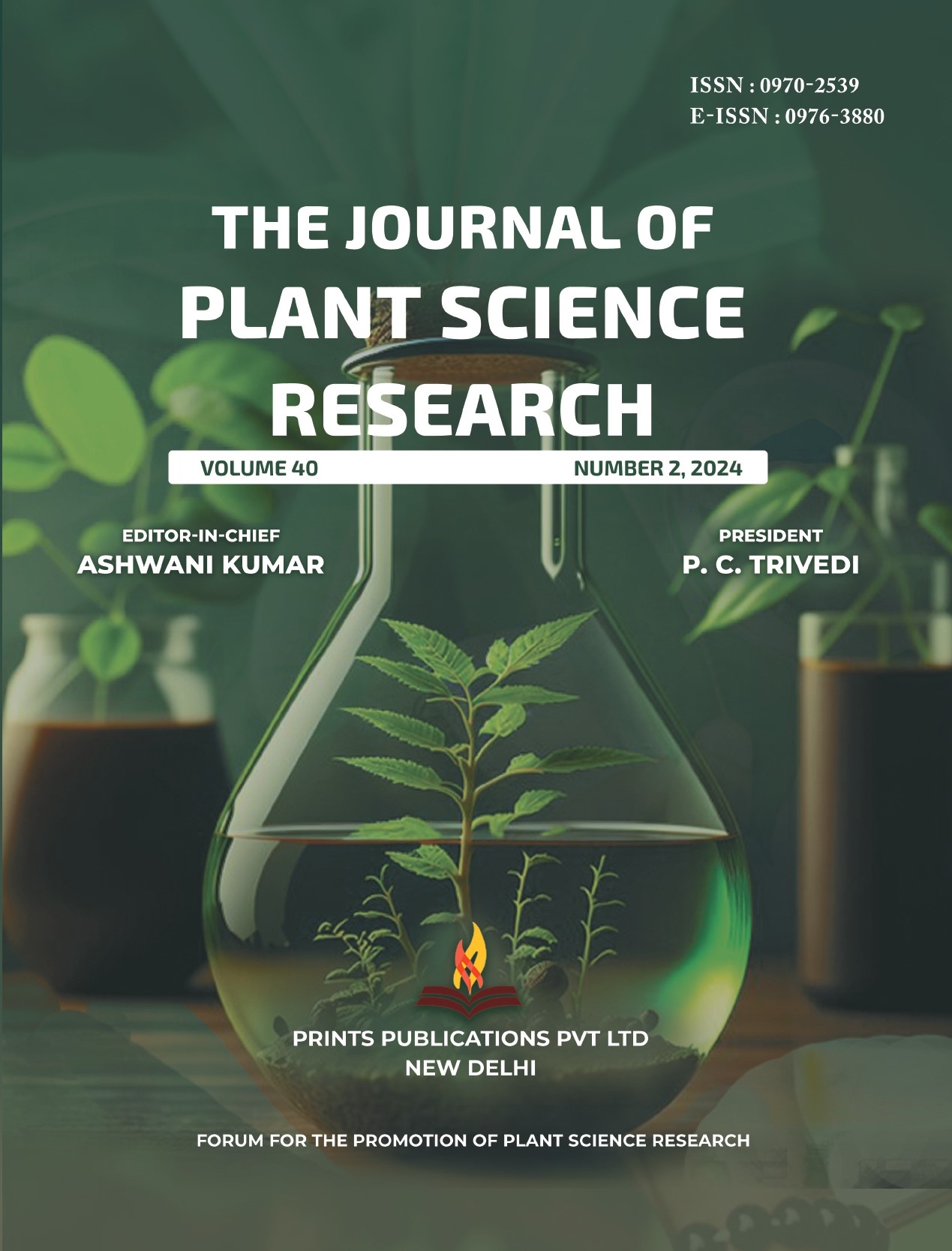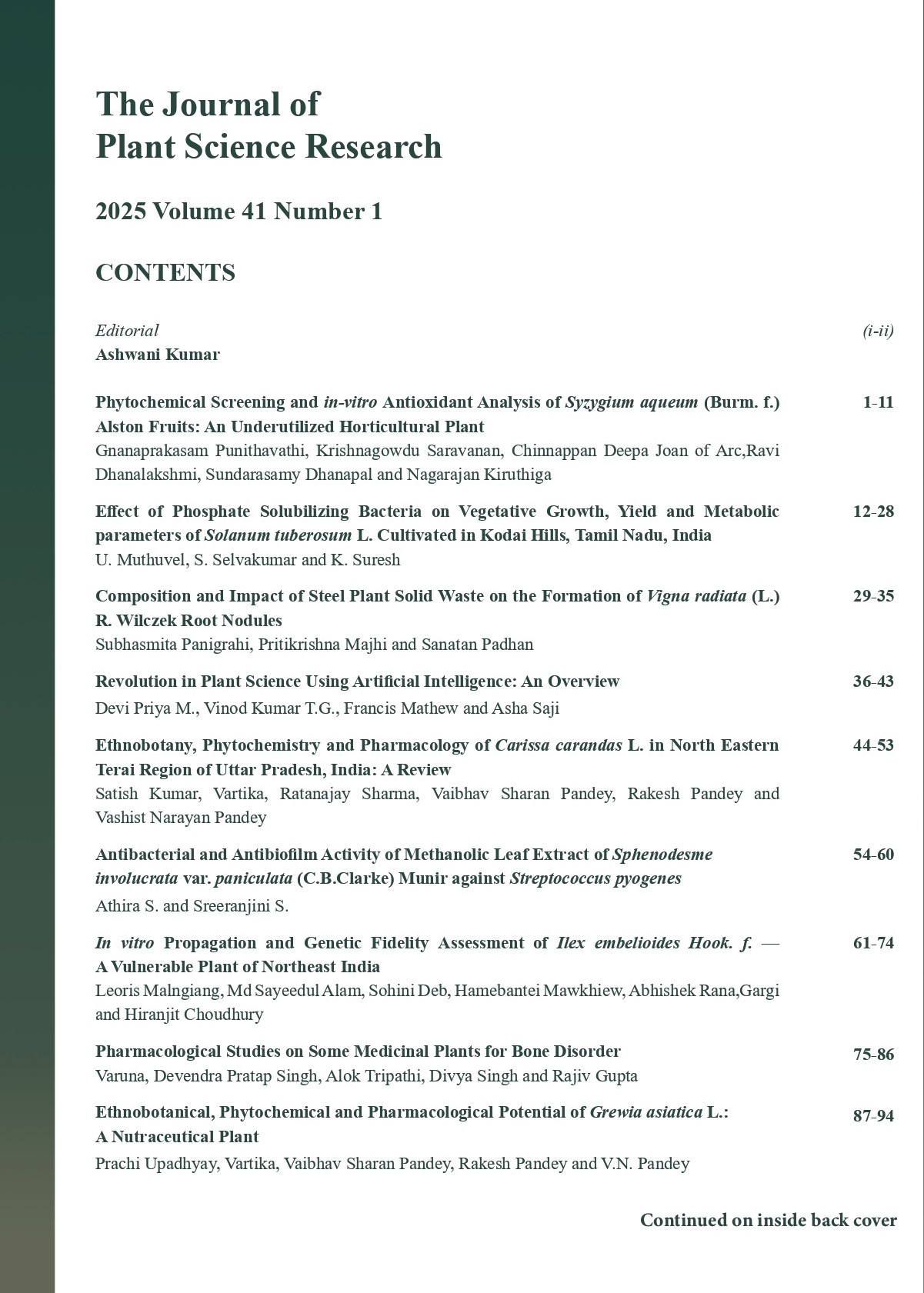The Journal of Plant Science Research - A UGC Care-Listed Journal
Published in Association with Forum For the Promotion of Plant Science Research
Current Volume: 41 (2025 )
ISSN: 0970-2539
e-ISSN: 0976-3880
Periodicity: Tri-annual
Month(s) of Publication: April, August & December
Subject: Botany
DOI: 10.32381/JPSR
Online Access is Free for Life Member
Mitigation of Copper and Zinc Stress in Maize Plants by Inoculation with Azotobacter sp
By : Gopakumar Pillai, Soni Pinkesh Kumar Patel
Page No: 289-299
Abstract
Excessive concentration of heavy metals in soil affects the fertility and can have deleterious effects on plants and microorganisms thriving in the soil. With decreasing soil fertility and expanding population, the issue of sustainable food security is gaining momentum. Maize (Zea mays), one of the commercially important crops, is adversely affected by increased concentration of the heavy metals, Copper and Zinc. Plant nutrient requirements can be effectively met using bio fertilizers while reducing the dependency on chemical fertilizers. Azotobacter sp. has been proved to be an efficient bio fertilizer for a variety of crops. Two rapidly growing isolates of Azotobacter sp. (viz. Isolates A and B) were obtained from rhizospheric soil samples and their cultural, microscopic and biochemical characteristics were studied. Isolate A tolerated Cu and Zn concentrations till 0.4% while isolate B showed tolerance till 0.4% of Zn and 0.6% of Cu. Exopolysaccharide produced by isolate A showed 48% copper bio sorption. Both isolates exhibited plant growth promoting traits like IAA production, ammonia production and phosphate solubilisation. Tryptophan supplementation enhanced IAA levels. Maximum IAA production was seen with isolate A (41.49 µg/mL) followed by isolate B (40.55 µg/mL). Phosphate solubilisation was observed to be more effectively carried out by isolate A. Increasing concentration of Cu and Zn had a severe impact on germination and growth of plants. However, inoculation of isolate A and B supported growth of plants under Cu and Zn stress (maximum concentration 0.4%). Inoculation showed significant improvement in biomass content, relative water content and chlorophyll concentrations of maize plants under stress.
Authors :
Gopakumar Pillai and Soni Pinkesh Kumar Patel
Department of Biotechnology, Pillai College of Arts, Commerce and Science (Autonomous), Dr. K. M. Vasudevan Pillai Campus, Maharashtra, India.
DOI: https://doi.org/10.32381/JPSR.2022.38.01.31






